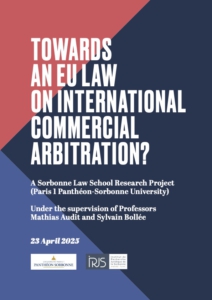Views
Torts and Tourists in the Supreme Court of Canada
In Sinclair v Venezia Turismo, 2025 SCC 27 (available here) the Supreme Court of Canada has, by 5-4 decision, held that the Ontario court does not have jurisdiction to hear claims by Ontario residents against three Italian defendants in respect of a tort in Italy. The Sinclair family members were injured in a gondola collision in Venice that they alleged was caused by the Italian defendants. But there were several connections to Ontario. The trip to Italy had been booked by Mr Sinclair using a premium credit card’s concierge and travel agency service [4, 156] and the gondola ride had been arranged through that service [15, 160]. The card was with Amex Canada and one or more contracts connected to the gondola ride had been made in Ontario. The Sinclairs were also suing Amex Canada and the travel service for carelessness in making the arrangements with the Italian defendants, and those defendants attorned in Ontario [167, 172]. A core overall issue, then, was whether the plaintiffs would be able to pursue all of their claims arising from the gondola collision, against various defendants, in one legal proceeding in Ontario.
According to the French Cour de Cassation, the law applicable to the sub-purchaser’s direct action against the original seller depends on who brings the claim!
Written by Héloise Meur, Université Paris 8
In two rulings dated 28 May 2025, the French Cour de cassation (Supreme Court) ruled on the issue of the law applicable to a sub-purchaser’s direct action in a chain of contracts transferring ownership, under European private international law. The issue is sensitive. The contractual classification under French law —an outlier in comparative law— had not been upheld by the Court of Justice of the European Union (CJEU) to determine international jurisdiction under the Brussels system (CJEU, 17 June 1992, C-26/91, Jakob Handte). Despite CJEU’s position, the Cour de cassation had consistently refused to adopt a tort-based qualification to determine the applicable law (esp. Civ. 1st, 18 dec. 1990, n° 89-12.177 ; 10 oct. 1995, n° 93-17.359 ; 6 feb. 1996, n° 94-11.143 ; Civ. 3rd, 16 janv. 2019, n° 11-13.509. See also, Civ. 1st, 16 jan. 2019, n° 17-21.477), until these two rulings rendered under the Rome II Regulation.
“Towards an EU Law on International Commercial Arbitration?” A Sorbonne Law School Research Project

Written by Dr. Nima Nasrollahi-Shahri (Sorbonne Law School) and Vincent Bassani-Winckler (PhD Candidate, Sorbonne Law School), both authors participated in the Working Group.
A few days ago, the Sorbonne Law School released the final report of a collective research project chaired by Professors Mathias Audit and Sylvain Bollée, entitled “Towards an EU Law on International Commercial Arbitration?”.
Conducted within the IRJS (Institut de Recherche Juridique de la Sorbonne), and more specifically its research group on private international law, SERPI (Sorbonne – Étude des Relations Privées Internationales), this project sets out to examine whether and how to improve the relationship between commercial arbitration and EU law.
News
Advance Article for Issue Three of the Uniform Law Review for 2025
An advanced article on conflict of laws for issue three of 2025 for Uniform Law Review was recently published.
Cayetana Santaolalla Montoya, “The challenges of blockchain arbitration from a private international law perspective”
This article aims to explore the emergence of blockchain arbitration and the legal challenges it poses from a private international law perspective. It examines the legal implications of this new type of arbitration and its feasibility under international regulatory frameworks (including the European Union, the USA, and the 1958 New York Convention), and it assesses leading decentralized justice platforms such as Kleros, Aragon, and Jur. The study highlights the fundamental differences between blockchain arbitration and traditional arbitration, identifying challenges such as the absence of a seat, the anonymity of parties and arbitrators, and the tension between decentralization and legal oversight. Finally, it explores future trends and proposes recommendations to adapt existing regulatory frameworks, concluding that, while blockchain arbitration will not replace classical arbitration in the short term, it could establish itself as a valuable complement to resolve disputes in the global digital economy.
First View Articles on the Third Issue of the International and Comparative Law Quarterly for 2025
The first view article of the third issue of the ICLQ for 2025 was published yesterday. It contains the following article on conflict of laws:
Ardavan Arzandeh, “Anti-Suit Injunctions in Support of Foreign Dispute-Resolution Clauses”
Courts in England ordinarily grant anti-suit injunctions when proceedings are (or will soon be) initiated in a foreign court in breach of clauses which subject disputes to the exclusive jurisdiction of courts, or refer them to arbitration, in England. Would they, however, grant such relief in support of foreign dispute-resolution clauses? In UniCredit Bank v RusChemAlliance, the Supreme Court of the United Kingdom answered this question in the affirmative, thus expanding the English courts’ power to issue anti-suit injunctions. This article seeks to assess the likely extent of this expansion and the future implications it could have for the law on anti-suit injunctions in England. The article also examines the Supreme Court’s pronouncements on the other significant issue in the case concerning the law governing arbitration agreements and their potential effect following the enactment of the Arbitration Act 2025.
Recent report on the Netherlands Commercial Court
Readers of this blog who are keen on the theme of commercial courts might be interested in the recent report ‘An interim assessment during the start-up phase of the Netherlands Commercial Court (NCC)’. This document is authored by T. Geurts, Y.N. Overvelde & M.P.C. Scheepmaker. The authors conducted an empirical study for the Research and Data Centre (WODC), an independent knowledge agency of the Dutch Ministry of Justice and Security.
Along with the full report in Dutch, a summary in English and a helpful accompanying post are available online.
The report provides several insights, including information on the NCC’s caseload in the past years, the countries where the litigating parties were domiciled, and the legal practitioners’ familiarity with the NCC’s work. Furthermore, the authors reflect on the future perspectives of the NCC.
Earlier posts on commercial posts are available here, with further links.



